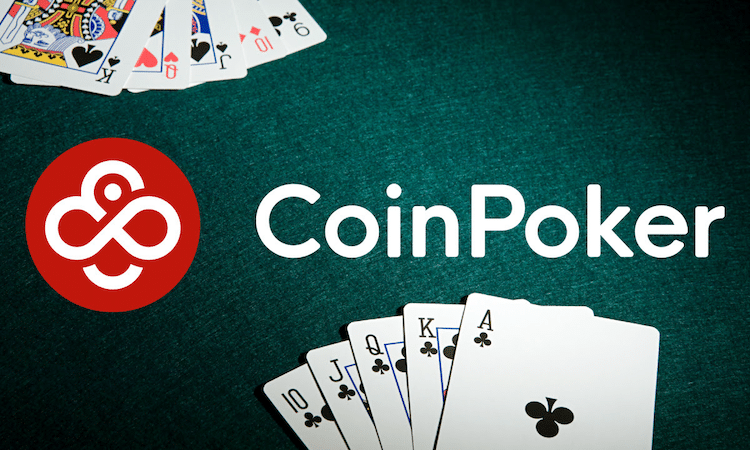Back in August, news broke about a professional poker player from Long Beach, California, who had confessed to money laundering and operating an illegal bookmaking business. The individual in question, Damien LeForbes, had agreed to plead guilty to federal charges both in Las Vegas and California, with his plea agreement initially signed in June.
LeForbes Pleads Guilty in Federal Court
On Thursday, the 43-year-old LeForbes formally entered his guilty plea in the US District Court of Central California. This marked a significant moment in the legal case, following the plea agreement he filed earlier in August. The charges against him stem from his involvement in an illegal sports-betting operation based out of a Las Vegas casino, which is referred to in court documents as “Casino A.”
Facing Up to 15 Years in Prison
LeForbes is set to be sentenced on January 23 in Los Angeles, and he could face up to 15 years in prison. In addition to the potential prison term, he also faces the possibility of three years of supervised release and a hefty fine of $500,000 or twice the gross gain or loss from his illegal activities, as outlined by the US Attorney’s Office. This sentencing will conclude a case that involved millions of dollars in illegal bets over a span of three years.
Illegal Gambling Operation at a Las Vegas Casino
Court documents revealed that LeForbes had been running his illegal sports-betting business, known as “the LeForbes Gambling Business,” for three years. During this time, he took in millions of dollars in bets, frequently playing at Resorts World Las Vegas. He also recruited casino hosts to help expand his enterprise, accepting payments in various forms, including checks, cash, cryptocurrency, and through payment processors. His gambling operation was extensive, and his involvement in the Vegas gambling scene caught the attention of authorities.
Nevada Gaming Control Board Targets Resorts World
Earlier in August, the Nevada Gaming Control Board (GCB) filed a disciplinary complaint against Resorts World, where LeForbes was a frequent player. The complaint alleged that the casino allowed individuals connected to illegal bookmaking and federal felony convictions to gamble on its premises. This raised concerns about how the casino was operating and whether it was enabling illegal gambling activities.
The Nevada Gaming Commission has yet to address the complaint, but the allegations are serious, as they claim that millions of dollars in illegal wagers were placed at Resorts World, damaging the reputation of Nevada’s gaming industry. Several convicted felons were linked to these activities, including Chad Iwamoto, who was convicted of transmitting wagering information and failing to file tax returns, and Mathew Bowyer, who pleaded guilty to running an illegal gambling business and money laundering. Edwin Ting, another individual connected to organized crime and illegal gambling, was also involved.
Resorts World’s Response to the Complaint
In response to the Nevada Gaming Control Board’s complaint, a spokesperson for Resorts World stated that the casino was “aware” of the situation and committed to upholding the highest standards of integrity. They emphasized their dedication to operating in compliance with all applicable laws and industry guidelines, maintaining their focus on serving guests and supporting their nearly 5,000 employees.
The complaint against Resorts World followed a separate case involving ex-Resorts World executive Scott Sibella, who had been sentenced for anti-money laundering violations. The casino has been under scrutiny due to its association with individuals involved in unlawful gambling operations, and the investigation highlights ongoing concerns about integrity in the gaming industry.
Awaiting Sentencing and Industry Impact
As the case against Damien LeForbes progresses, the broader implications for the Las Vegas gambling industry continue to unfold. LeForbes awaits his sentencing in January, and the outcome could send a strong message about the consequences of illegal gambling operations in Nevada. Meanwhile, the involvement of Resorts World and the Nevada Gaming Control Board’s disciplinary action reflect the challenges the casino industry faces in maintaining a clean and transparent operation.
Illegal Gambling Operations in Other States
Illegal gambling and money laundering have been ongoing issues in Nevada and other states, with law enforcement agencies frequently uncovering operations that link the two crimes. In Nevada, the state’s extensive legal gambling industry sometimes creates an environment where illegal operations attempt to blend in with legitimate businesses. Criminal enterprises often launder money through illegal gambling rings, using casinos, online platforms, or underground betting operations to funnel illicit funds and obscure their origin. In states like California, Florida, and New York, similar operations have been exposed, where illegal gambling houses and internet-based sportsbooks serve as fronts for laundering money obtained from drug trafficking, fraud, or other criminal activities. These operations pose a serious threat to state and federal regulations, as they evade taxation and create a complex web of criminal financial dealings.
In 2022, several high-profile cases in Florida and New York highlighted the scope of illegal gambling networks. Law enforcement agencies uncovered underground poker rooms and sports betting operations that laundered millions of dollars. These cases involved organized crime groups that used cash-intensive businesses like strip clubs or restaurants to conceal the money. Similar patterns were seen in Texas and Arizona, where authorities shut down illicit gambling networks that funneled profits from drug distribution and human trafficking into seemingly legitimate enterprises. These criminal organizations exploit loopholes in regulatory frameworks to operate without detection, posing ongoing challenges for financial oversight and law enforcement agencies.
Monitoring and Prevention
Preventing illegal gambling and money laundering requires robust coordination between law enforcement agencies, regulatory bodies, and the financial sector. In Nevada, the Gaming Control Board has ramped up efforts to monitor both brick-and-mortar and online casinos for signs of illicit activity. Advanced technologies like anti-money laundering (AML) software are employed to track suspicious financial transactions, flagging any unusual patterns in cash flow that could indicate illegal gambling or laundering. Additionally, casinos are mandated to comply with the Bank Secrecy Act, requiring them to report transactions over a certain threshold and maintain rigorous record-keeping to deter financial crimes. Regular audits and surprise inspections further ensure that casinos follow these guidelines, making it harder for criminals to exploit the system.
At the federal level, the U.S. Department of Justice works alongside agencies like the IRS and FinCEN (Financial Crimes Enforcement Network) to tackle illegal gambling and money laundering. They collaborate with state regulators and local law enforcement to dismantle criminal networks by tracing financial flows, seizing assets, and prosecuting individuals involved. Public awareness campaigns and increased penalties for money laundering and illegal gambling also act as deterrents. These combined efforts aim to reduce the prevalence of illegal gambling operations and mitigate the financial crimes associated with them.

CoinPoker: The Blockchain Poker Platform Revolutionizing Online Gaming
If you’re a poker enthusiast looking to dive into the world of cryptocurrencies, CoinPoker offers an exciting and innovative experience. Unlike traditional online poker rooms, this platform is powered by blockchain technology, providing a secure, transparent, and modern environment. CoinPoker isn’t just limited to poker—it also features sports betting and fully embraces cryptocurrencies, offering players an alternative to the more conventional poker sites.
How CoinPoker is Transforming Online Poker with Blockchain
Since its launch in 2017, CoinPoker has become a leader in merging blockchain technology with the world of online poker. Initially, the platform began as a free-to-play service but quickly transitioned to real-money games by 2018, allowing players to bet using various cryptocurrencies. The native token of CoinPoker, CHP (Chip), plays a key role on the platform, rewarding players and facilitating quick transactions. In addition to CHP, CoinPoker accepts popular cryptocurrencies such as Bitcoin (BTC), Ethereum (ETH), and Tether (USDT), all running on the Ethereum network. This blockchain integration ensures a highly secure and transparent system, positioning CoinPoker as a pioneer in the crypto-powered poker scene.
One of the platform’s most notable features is its advanced Random Number Generator (RNG) technology, which guarantees the fairness of every poker hand. The decentralized structure of CoinPoker, coupled with this RNG technology, attracts players who value a fair and secure gaming experience. Moreover, the use of cryptocurrencies allows players to remain anonymous, enabling privacy and security through crypto-based transactions without the need to share personal details.
Security, Transparency, and Credibility at CoinPoker
CoinPoker has built a strong reputation in the online poker community, bolstered by endorsements from renowned poker professionals such as Mario Mosböck and Patrick Leonard. These endorsements have cemented its credibility, especially among serious poker players. The platform operates under a license from Curaçao eGaming and uses a Proof of Reserves (PoR) system to ensure that all player deposits are fully backed. With reserves exceeding $16 million, CoinPoker guarantees the security of players’ funds, offering financial stability and peace of mind.
The platform’s reliance on cryptocurrencies also enables fast and secure transactions, avoiding the delays often associated with traditional poker platforms. With a focus on quick payments and anti-fraud measures, CoinPoker has developed a reputation for reliability and user-friendliness. Although its selection of games may not be as extensive as some larger poker sites, CoinPoker’s focus on fairness and cryptocurrency integration makes it a standout option for players interested in blockchain-based poker.
CoinPoker’s Vision for the Future
As the online gaming landscape continues to evolve, CoinPoker is positioning itself at the forefront of innovation in the poker world. By leveraging blockchain technology, the platform not only enhances the poker experience but also raises the bar for the entire online gaming industry. This shift is crucial as more players seek private and secure environments in which to enjoy their favorite games.
CoinPoker isn’t stopping here. The platform is actively expanding its offerings, with plans to introduce new tournament formats and game styles tailored to various types of players. The community-driven approach of CoinPoker helps foster engagement and interaction among users, making for a more dynamic and immersive experience. Regular updates and continuous improvements ensure that CoinPoker remains committed to delivering the best possible poker experience for its players.
Discover the Future of Poker with CoinPoker
For poker players eager to explore the world of decentralized gaming, CoinPoker offers a unique and exciting platform. Whether you’re a seasoned poker veteran or a newcomer to the game, CoinPoker provides a blend of cutting-edge technology and classic poker. Join CoinPoker today and experience the future of poker, driven by the power of blockchain.
Related News
-
- Best Bitcoin Casinos According To Trustpilot
- Gaming Industry Boosts Spending on Responsible Gaming Efforts Amid Growing Commitment
- Best Crypto Sports Betting Sites in October 2024 – Compare Bitcoin Sportsbooks
- The Growing Threat of Unregulated Betting in the Horseracing Industry
- Fastest Payout Online Casinos in 2024 – Casinos With Instant Withdrawals for US Players


